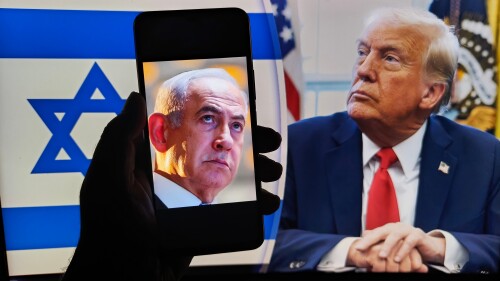After the latest Iranian missile attack on Israel, a significant Israeli retaliation is a certainty. This situation is fraught with risks of escalation and widespread global impact. In the face of these dangers, Western policymakers should explore strategic approaches to drive change in the Islamic Republic.
The expected Israeli strikes will be a near-term blow to the Iranian regime; however, the aftermath presents a target to exploit for long-term impact. A weakened regime can be further undermined if the United States and its allies conduct an aggressive influence and covert support campaign focusing on one of Iran’s most powerful constituencies: its women.
For more than four decades, Iran’s ruling clerics have maintained control through suppression, including the subjugation of women. This oppression creates a critical vulnerability; the regime has transformed half of its population into a potential source of resistance and social transformation. As Sun Tzu famously observed, “In war, the way is to avoid what is strong and strike at what is weak.” The disenfranchisement of women represents a substantial weakness in Iran’s social fabric. Having endured systematic discrimination for years, women are primed for influence narratives that call for empowerment and liberation. This approach would turn the regime’s oppressive energy inward, leading to internal destabilization and, potentially, its collapse.
Iranian women long have played a critical role in their society, from their participation in the 1979 revolution to their enduring resistance of religious and legal repression. They have proven their resilience and influence against the regime’s constraints. Their cultural presence and activism, despite grave personal risks, present a potent counterforce to the regime’s power.
A comprehensive strategy to empower Iranian women would begin with covert support to grassroots movements. Many women’s groups exist in Iran, yet they often lack the resources needed to organize and operate effectively. The U.S. can provide financial support, resources for secure communication, and logistical aid to help these movements grow without appearing as overt foreign interference.
Media play a crucial role in amplifying the voices of Iranian women. Digital platforms transcend borders and can magnify these voices, creating global awareness and rallying international support. U.S.-supported media outlets, such as Radio Farda and Voice of America, can highlight the struggles and resistance of Iranian women while galvanizing the diaspora to spread their stories across networks.
Cultural diplomacy is another powerful tool. Programs such as international scholarships, cultural exchanges, and leadership development initiatives can foster a generation of empowered Iranian women who are even more resilient to the regime’s influence. These programs should teach the skills necessary for leadership, organization, and resistance, fortifying a future opposition movement.
A predictable response from the regime to increased activism by women is heightened repression. Historically, crackdowns often have backfired, further alienating key segments of the population. By escalating violence and punishment against women activists, the regime risks widening its legitimacy gap—not just among women but across broader society.
The U.S. must ensure that the momentum generated by women’s movements becomes self-sustaining. The U.S. should provide early-stage support, with a goal of cultivating a domestic movement capable of growing independently. This would increase the movement’s credibility in Iran and make it more difficult for the regime to dismantle it. A decentralized, locally led movement becomes much harder to suppress, particularly when a large portion of the population deeply feels the grievances.
Any attempt to influence internal affairs in Iran carries risks. The regime may retaliate not only against women’s movements but also against U.S. interests in the region. However, the U.S. can mitigate these risks through careful diplomacy. The U.S. must maintain plausible deniability in its covert support, ensuring that its involvement remains discreet and does not provoke direct confrontation with the regime.
Internationally, the U.S. can work with allies to isolate Iran diplomatically and economically, applying pressure in response to the regime’s human rights abuses. Sanctions targeting individuals, paired with diplomatic outreach, can create leverage without escalating into full-scale conflict.
Empowering Iranian women represents one of the most innovative ways to effect change in Tehran. By turning the regime’s oppression against it, the U.S. can exploit a critical vulnerability. The U.S. and its allies must embrace this opportunity. Doing so will lay the groundwork for a future in which women’s empowerment is a cornerstone of a more democratic and prosperous Iran. In the long term, enabling Iranian women to play a central role in shaping a democratic society offers the potential for a more stable and peaceful Middle East.








